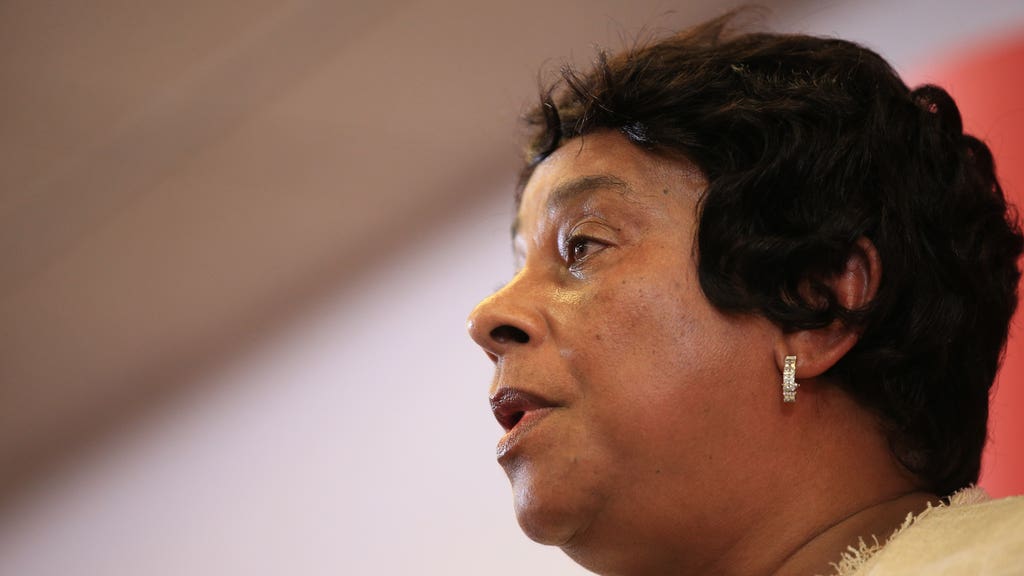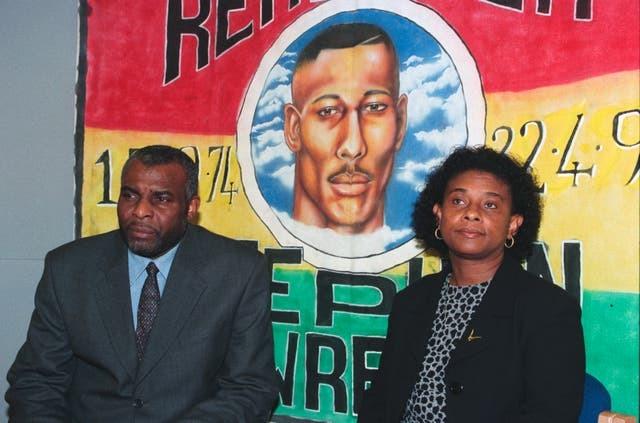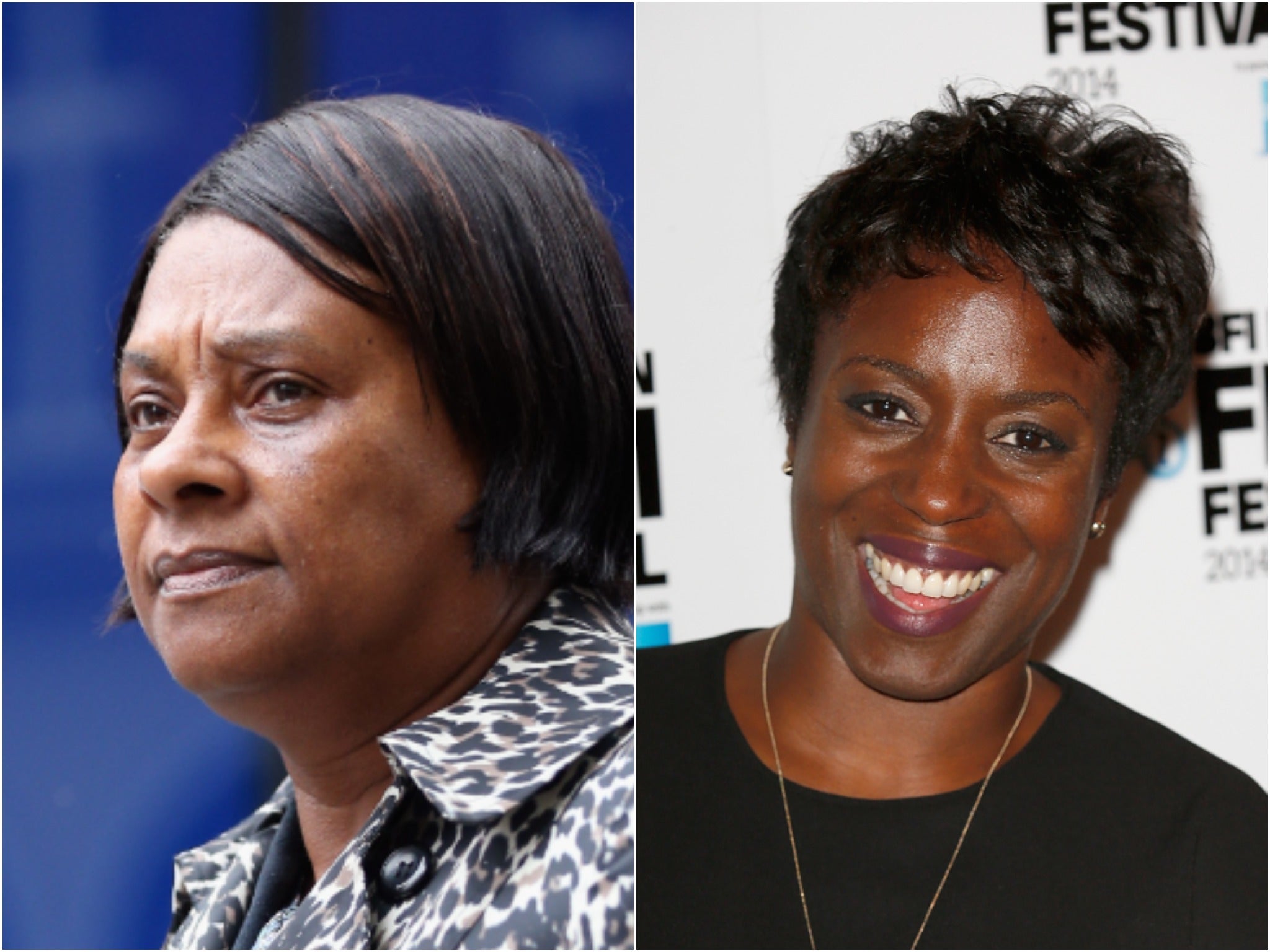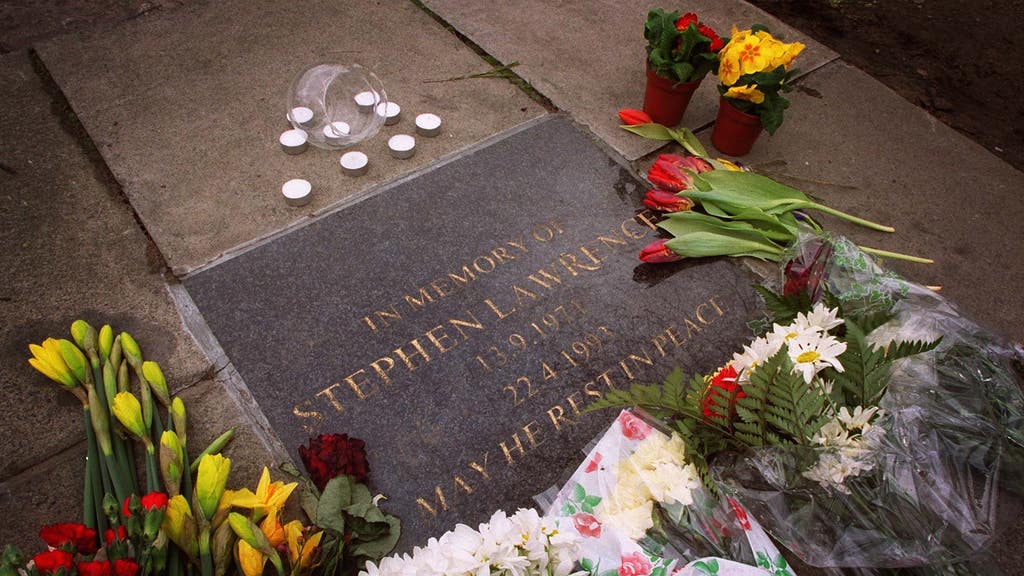Doreen Lawrence: One Black mother’s relentless pursuit of justice
‘May you never experience what I have experienced,’ she wrote in her memoirs

Your support helps us to tell the story
From reproductive rights to climate change to Big Tech, The Independent is on the ground when the story is developing. Whether it's investigating the financials of Elon Musk's pro-Trump PAC or producing our latest documentary, 'The A Word', which shines a light on the American women fighting for reproductive rights, we know how important it is to parse out the facts from the messaging.
At such a critical moment in US history, we need reporters on the ground. Your donation allows us to keep sending journalists to speak to both sides of the story.
The Independent is trusted by Americans across the entire political spectrum. And unlike many other quality news outlets, we choose not to lock Americans out of our reporting and analysis with paywalls. We believe quality journalism should be available to everyone, paid for by those who can afford it.
Your support makes all the difference.More than two decades after the release of Paul Greengrass’s acclaimed film The Murder of Stephen Lawrence (1999), ITV is releasing a follow-up drama, Stephen, based on the legacy of the 1993 murder.
Stephen Lawrence’s mother, Baroness Doreen Lawrence, has been a seminal figure in the struggle for racial justice and advancement of social policy in modern Britain.
Her son, who was 19 at the time, was stabbed to death in a racist attack by a gang of white youths as he waited at a bus stop in Eltham, southeast London, with his best friend Duwayne Brooks.
Over the following years Baroness Lawrence, now 68, spearheaded a campaign to achieve justice for her eldest son. Her pioneering work sparked a public inquiry that culminated in the 1999 publication of the landmark Macpherson Report, led by the recently departed Sir William Macpherson, which branded the Metropolitan Police institutionally racist.
“We have more than earnt the right to live and not have our children killed in the way Stephen was,” she said back then, as the inquiry was taking place.
“This society has stood by and allowed my son’s killers to make a mockery of the law.”
The inquiry recommended a series of reforms within UK policing and made important strides towards a general understanding of racial inequality in the UK even if, as the baroness has often said since then, there’s still a long to way to go.
Indeed, just days ago the Home Affairs Committee found that racism still continues to blight policing some two decades after the Stephen Lawrence Inquiry, with forces being marred by “unjustified” racial disparities in policing, including recruitment and disproportionate use of stop and search.
Meanwhile trust between police and communities remains broken, years later.

The path to the inquiry was far from easy, due to incompetence, alleged corruption and racism in law enforcement.
Together with Neville Lawrence, her husband at the time and Stephen’s father, Baroness Lawrence held the authorities’ feet to the fire, despite their immense personal heartbreak and grief.
In April 1994, the year after Stephen’s death, the Crown Prosecution Service said there was insufficient evidence to bring a prosecution against Neil Acourt, Jamie Acourt, Gary Dobson, Luke Knight and David Norris.
Five months later, in September that year, Stephen’s parents unsuccessfully attempted their own private prosecution against Dobson, Knight and Neil Acourt, which was eventually thrown out.
Dobson and Norris were eventually found guilty of the aspiring architect’s murder in January 2012, almost 19 years later. The remaining three suspects originally questioned deny involvement. Acourt and Norris were also both jailed for 18 months in 2002 over an unrelated racist attack on an off-duty Black policeman, Gareth Reid.
And while the Lawrence family lobbied for accountability for those responsible for Stephen’s murder, their home was spied upon by undercover officers.
For a mother battling grief, having lost her son to senseless violence, she also faced the darkest elements of the Metropolitan Police head-on, and she is still standing.
“So, for many of us, she is Black royalty,” Lord Simon Woolley, who sits in the House of Lords with Doreen, told The Independent.
“Over the last 20 years, Doreen has single-handedly become the racial conscience of our society. From her own extreme pain Doreen has sought not just to challenge the police and the political and democratic system – she also sought to challenge who we are as a nation with the unspoken mantra that we’re better than this.”
In April 2019, then-prime minister Theresa May described the teenager’s death as a “watershed moment” for Britain, as she marked the first Stephen Lawrence Day.
Be that as it may, the devastation of this tragedy cannot be overstated, and Baroness Lawrence is ultimately a grieving mother whose son’s life was cruelly cut short.
“There isn’t a day when I don’t talk about him in one way or the other. And now I have my three grandchildren to remind me,” Baroness Lawrence told The Guardian in 2013.

“I think he would have had a family, I think he would have travelled widely,” she said.
“I know he would have qualified as an architect. As I often say to people: you don’t know what the future holds.
“Up until Stephen died, I think I took my kids, my family, for granted, like we all do. I don’t do that now.”
In 2020, the Met announced that it would not be pursuing any new lines of inquiry in the Stephen Lawrence case.
“I am truly disappointed that those others who were equally responsible for my son’s racist killing may not be brought to justice,” Baroness Lawrence responded at the time.
“Despite this, I would still urge anyone who has any information that could help me get all of Stephen’s killers convicted to come forward. It is never too late to give a mother justice for the murder of her son. Whilst the Metropolitan Police have given up, I never will.”

Over the years, Baroness Lawrence has promoted police reforms and founded the Stephen Lawrence Charitable Trust in 1998 to develop community programmes to support thousands of young people across the country in reaching their true potential.
While this initiative was recently branded as Blueprint For All, she has cut ties with it and gone on to launch the Stephen Lawrence Day Foundation which has been described as the “only home of Stephen’s legacy”.
Born in Clarendon, Jamaica, in 1952, Baroness Lawrence migrated to Britain at the age of nine to join her parents, who had moved here as part of the Windrush generation.
She married Neville Lawrence in 1972 and together the couple had three children: Stephen, Stuart and Georgina.
The anti-racism campaigner is a member of the board and council of human rights organisation Liberty and patron of the charity Stop Hate UK.
In 2013, she was awarded an OBE for services to community relations and made a Labour life peer.
The mother-of-three often lends her voice, time and insight to advancing causes around equality across the UK.
Lord Woolley described how she took the pain from her grief and somehow turned it into political action. “Doreen has taken that strength and now it’s at the heart of Westminister in the House of Lords. She will continue to be the conscience of our nation and we need it now more than ever with a government that is reluctant to acknowledge systemic racial inequality much less dramatically try and change it.”
The activist was appointed as the Labour Party’s race adviser in April 2020 and was commissioned to lead the party’s review into how Covid-19 is affecting Black, Asian and minority ethnic communities by Labour leader Sir Keir Starmer.
She said it was hoped that a previous Public Health England report would recommend action to reduce disparities, but that it failed to do so.

The review, An Avoidable Crisis, found that decades of structural discrimination led to the disproportionate impact of the coronavirus pandemic on minority ethnic communities.
Reflecting on the past three decades last Black History Month, she said: “Twenty-seven years on and not all young people have heard the name Stephen Lawrence or know his story.
“But 2020 has shown us that Stephen’s story – unequal treatment because of skin colour, and exposure of embedded prejudice in systems, structures and institutions – is as relevant today across the whole world as it has ever been.
“George Floyd’s murder opened many people’s eyes to the extent to which racial inequality remains prevalent. And research on pandemic mortality rates has created further awareness of how pernicious racial inequality is, and the wide but still little-understood consequences of it.”
Baroness Lawrence’s story will be at the centre of Stephen which airs on ITV this Monday; that of a Black mother who, wielding courage and conviction fearlessly – or perhaps fearfully – took on a skewed criminal justice system and changed it forever.
Join our commenting forum
Join thought-provoking conversations, follow other Independent readers and see their replies
Comments